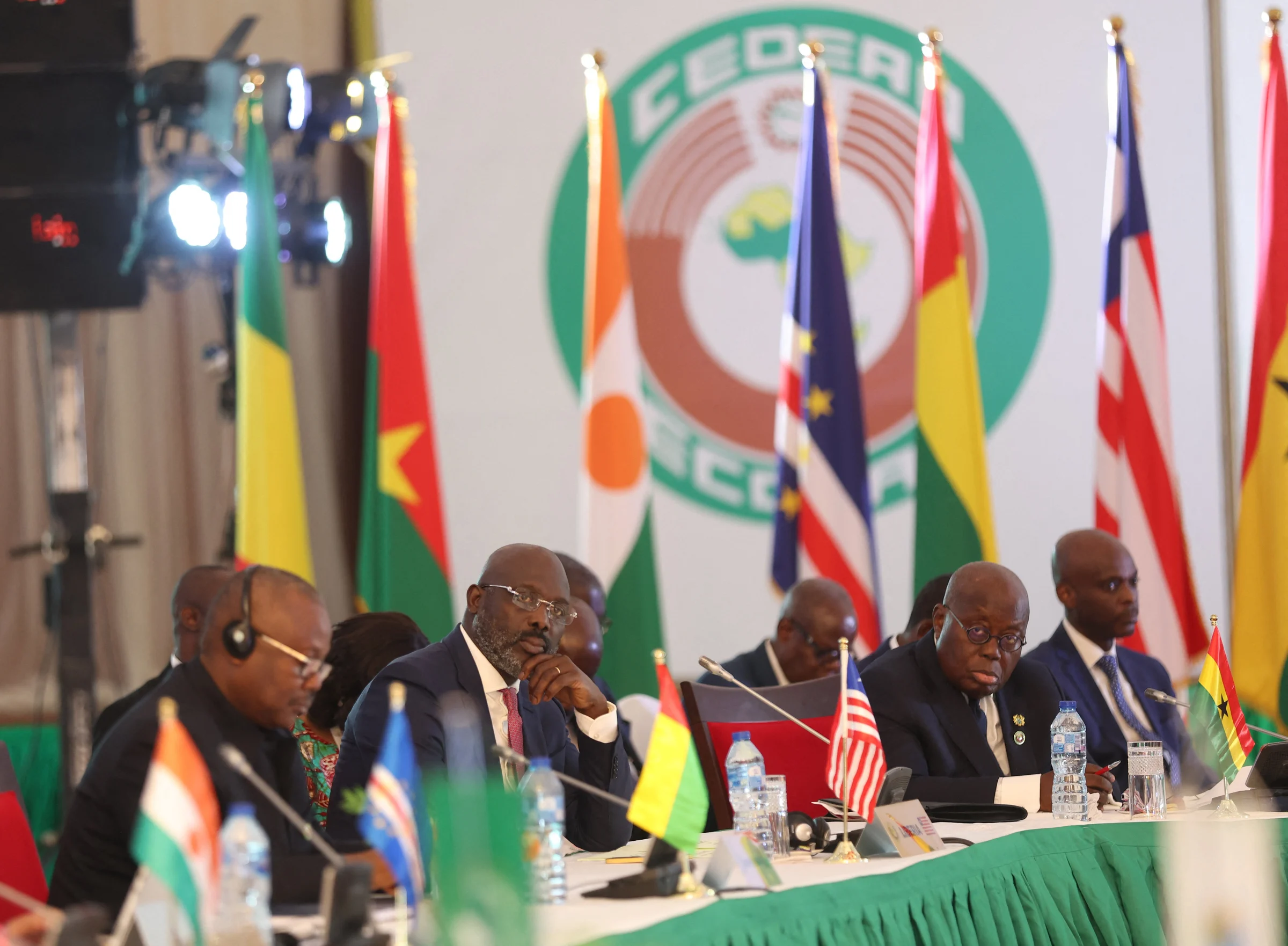Gathered in Abuja, ECOWAS members paved the way on Sunday for easing its sanctions against Niger, conditioning it for a “short transition” before civilians return to power.
A committee composed of the presidents of Benin, Togo and Sierra Leone will negotiate with the Niger military regime the commitments to be implemented before a possible relaxation of sanctions, the Chairman of the Commission of the Economic Community of West African States (ECOWAS), Omar Touray has announced.
These soldiers, who overthrew President Mohamed Bazoum in a coup d’état on July 26, have since led the country in the National Council for the Safeguarding of the Fatherland (CNSP). In response, in early August, ECOWAS members imposed heavy economic and financial sanctions on Niamey.
“Tiani is ready to talk”
“Based on the results of the commitment of the Committee of Heads of State with the CNSP, the authority will gradually ease the sanctions imposed on Niger,” Omar Touray said at the end of the summit. But “if the CNSP does not comply with the results of the engagement with the committee, ECOWAS will maintain all sanctions,” he added. The regional organization wants Niamey to commit itself to “a short road map for the transition” to “the rapid restoration of constitutional order,” namely, a return to a civilian regime.
This decision of ECOWAS follows the visit to Togo on Friday of the military leader of Niger, General Abdourahamane Tiani, with some of his ministers. A few days before, Niamey had asked Togolese President Faure Gnassingbé to play a mediating role. “Tiani is ready to discuss the duration of the transition and the situation of Bazoum”, who has been held in Niamey in his residence since 26 July, said a Togolese source about these discussions.
At the opening of the summit, Omar Touray stated that “the military authorities (in Niamey) unfortunately showed little remorse by clinging to their untenable positions, taking not only President Bazoum, his family and members of his government hostage, but also the people of Niger.”
US Assistant Secretary of State for African Affairs, Molly Phee, said on Sunday that she had been invited to participate in the summit talks aimed at allowing a democratic regime to return to Niger and helping to make the Sahel a safer place.
“Ghost Alliance”
Historically, a key partner in the West’s fight against jihadist groups, Niger has demanded the departure of French troops, which has already begun, while the US still has military personnel there. Of the 15 member countries of ECOWAS, four are now headed by military personnel who have come to power by coups d’état since 2021: Mali (2021), Guinea (2021), Burkina Faso (2022) and Niger (2023).
Together with the military regimes of Mali and Burkina Faso, the Niger created the Alliance of Sahel States (AES) to strengthen their cooperation. “This ghost alliance seems to be intended to divert attention from our mutual quest for democracy and good governance,” Nigerian President Bola Tinubu, who chairs ECOWAS, said on Sunday. While calling for “re-closing dialogue with military-regime countries with realistic and short-term planned transitions”.
The proliferation of these military regimes worries ECOWAS for their challenges to democracy, but also to the risks of regional destabilization. The withdrawal of the French army from the Sahel has heightened fears that the instability will spread to the Gulf of Guinea states: Ghana, Togo, Benin and Côte d’Ivoire. This is a recent time in Sierra Leone and Guinea-Bissau, events presented by the authorities as attempted d’état.

